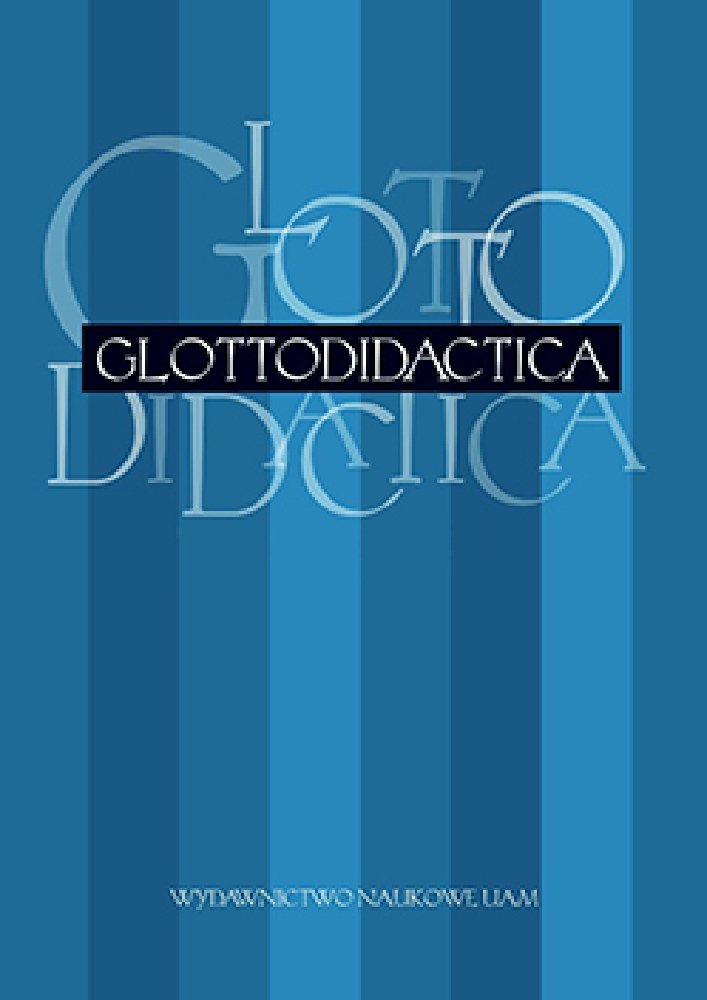Résumé
Foreign language teachers’ language competence is one of the key factors contributingto the success of instruction as it ensures the provision of a good model of the target language,enables teachers to address the problems learners encounter, and makes teaching more creative. For this reason, improving this facet of a teacher’s expertise is indispensible in in-service teacher training, either in the form of stand-alone courses or modules incorporated into more comprehensive teacher education programs. The main aim of the present paper is to emphasize the importance of language teachers’ proficiency in the language they teach, describe its dimensions, presentthe possible goals of in-service teacher education in this area, and discuss issues involved inconducting and organizing training of this kind.Références
Bachman, L.F., 1990. Fundamental Considerations in Language Testing. Oxford: Oxford University Press.
Berry, R., 1990. The Role of Language Improvement in In-Service Teacher Training: “Killing Two Birds with One Stone”. In: System 18, 97–105.
Canale, M., 1983. From Communicative Competence to Communicative Language Pedagogy. In: Richards, J.C., Schmidt, R. (eds). Language and Communication. London: Longman, 2–27.
Canale, M., Swain, M., 1983. Theoretical Basis of Communicative Approaches to Second Language Testing and Teaching. In: Applied Linguistics 1, 1–47.
Ellis, R., 2009. Implicit and Explicit Learning, Knowledge and Instruction. In: Ellis, R., Loewen, S., Elder, C., Erlam, R., Philp, J., Reinders, H. (eds). Implicit and Explicit Knowledge in Second Language Learning, Teaching and Testing. Bristol: Multilingual Matters, 3–25.
Farrell, T.S.C., 2007. Reflective Language Teaching: From Research to Practice. London: Continuum.
Harmer, J., 2007. The Practice of English Language Teaching (fourth edition). Harlow: Pearson Education.
Kelly, M., Grenfell, M., Allan, L., Kriza, C., McEvoy, W., 2004. European Profile for Language Teacher Education – a Frame of Reference. Final Report. Luxemburg: European Commission.
Lafayette, R., 1993. Subject Matter Content: What Every Foreign Language Teacher Needs to Know. In: Guntermann, G. (ed.). Developing Language Teachers for a Changing World. Illinois: National Textbook Company, 124–158.
Medgyes, P., 2001. When the Teacher is a Non-Native Speaker. In: Celce-Murcia, M. (ed.). Teaching English as a Second or Foreign Language (third edition). London: Heinle & Heinle, 429–442.
O’Malley, J.M., Chamot, A.U., 1990. Learning Strategies in Second Language Acquisition. Cambridge: Cambridge University Press.
Roberts, J., 1998. Language Teacher Education. London: Arnold.
Roever, C., 2009. Teaching and Testing Pragmatics. In: Long, M.H., Doughty, C.J. (eds). The Handbook of Language Teaching. Oxford: Wiley-Blackwell, 560–577.
Skehan, P., 2000. Task-Based Instruction: Theory, Research, Practice. In: Pulverness, A. (ed.). IATEFL 2002: York Conference Selections. Canterbury: IATEFL, 90–99.
Van Ek, J.A., 1986. Objectives of Foreign Language Learning. Vol. 1: Scope. Strasbourg: Council of Europe.
Williams, J., 2005. Form-Focused Instruction. In: Hinkel, E. (ed.). Handbook of Research in Second Language Teaching and Learning. Mahwah, NJ: Lawrence Erlbaum, 671–691.
Licence
Auteurs
Les auteurs de textes acceptés pour publication dans la revue Glottodidactica sont tenus de remplir, signer et renvoyer à l'adresse de la rédaction, un accord sur l'octroi d'une licence gratuite pour les œuvres, avec obligation d'accorder une sous-licence CC.
Conformément à cet accord, les auteurs des textes publiés dans la revue Glottodidactica accordent à l'Université Adam Mickiewicz de Poznań une licence non exclusive et gratuite et autorisent l'utilisation de la sous-licence Creative Commons Attribution-NoDerivatives 4.0 International (CC BY-ND 4.0).
Les auteurs se réservent le droit de disposer librement de l'œuvre.
Utilisateurs
Les utilisateurs d'Internet intéressés ont le droit d'utiliser les œuvres publiées dans la revue Glottodidactica depuis 2016, selon les conditions suivantes :
- Attribution – obligation de fournir, conjointement avec l'œuvre distribuée, des informations sur l'auteur, le titre, la source (lien vers l'œuvre originale, DOI) et la licence elle-même.
- Aucune modification – l'œuvre doit être préservée dans sa forme originale. Sans le consentement de l'auteur, il n'est pas possible de distribuer l'œuvre modifiée sous forme de traductions, publications, etc.
Les droits d'auteur sont réservés pour tous les textes publiés avant 2016.
Autres
L'Université Adam Mickiewicz de Poznań conserve les droits sur la revue dans son ensemble (mise en page, forme graphique, titre, conception de la couverture, logo, etc.).
A PARTIR DE L’ANNEE 2015, LES ARTICLES PUBLIÉS DANS LA REVUE SONT DISPONIBLES SOUS LICENCE CREATIVE COMMONS : https://creativecommons.org/licenses/by-nd/4.0/deed.fr




